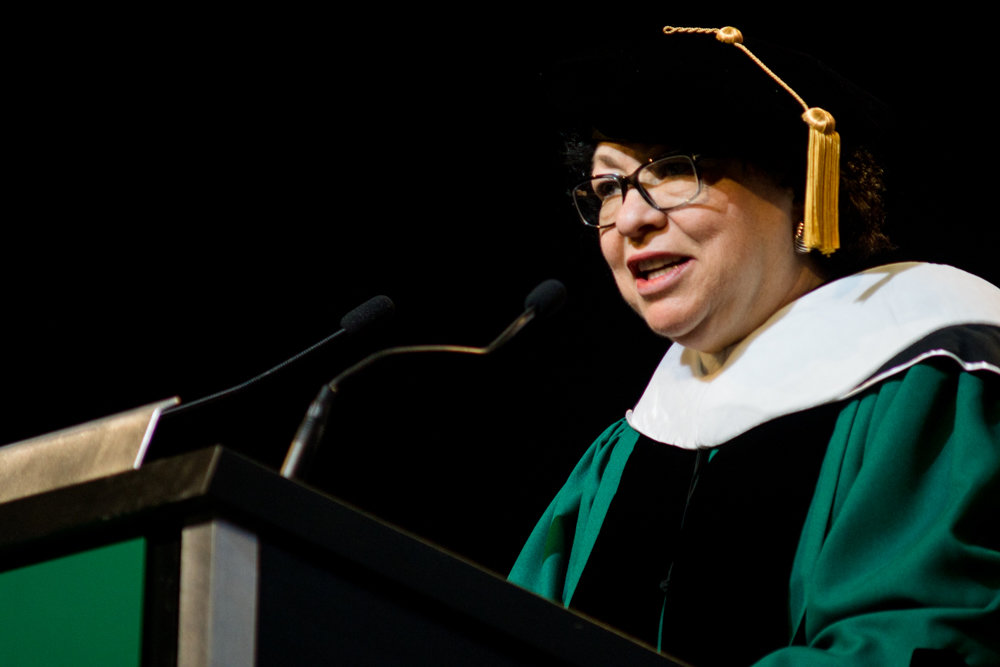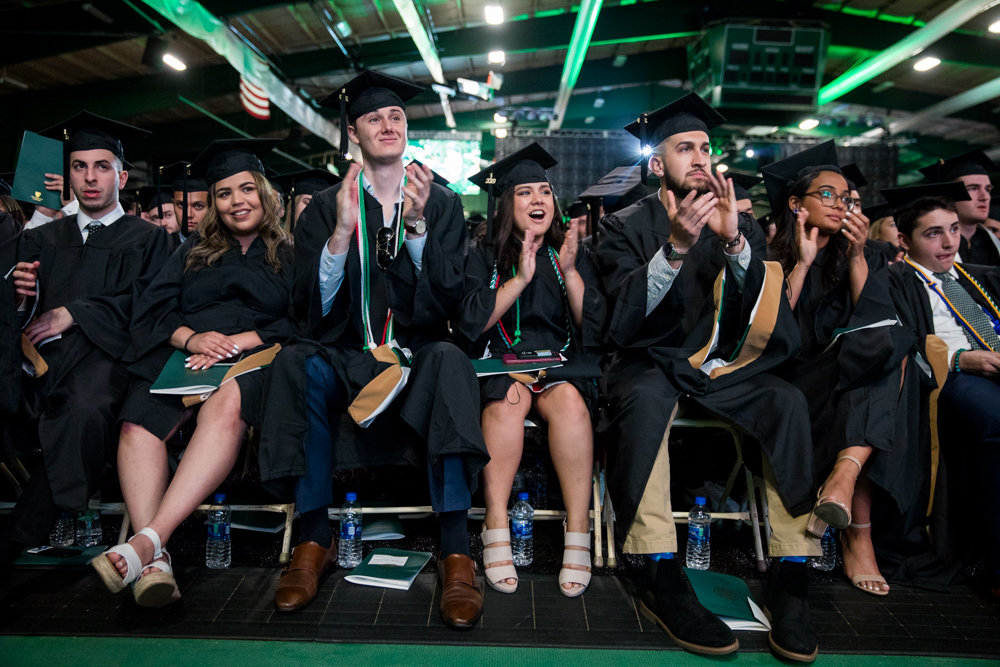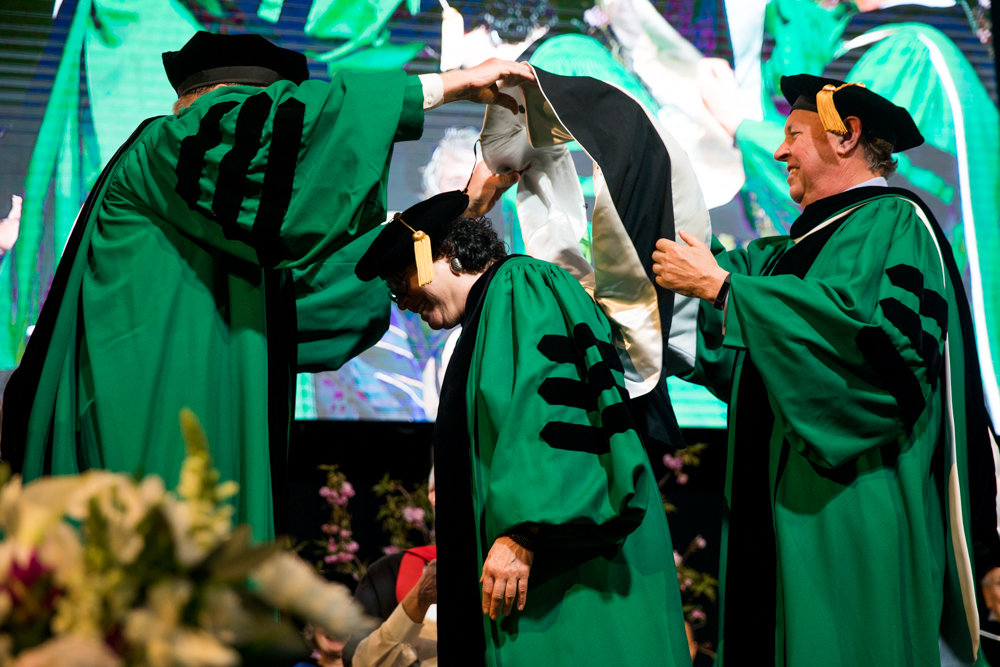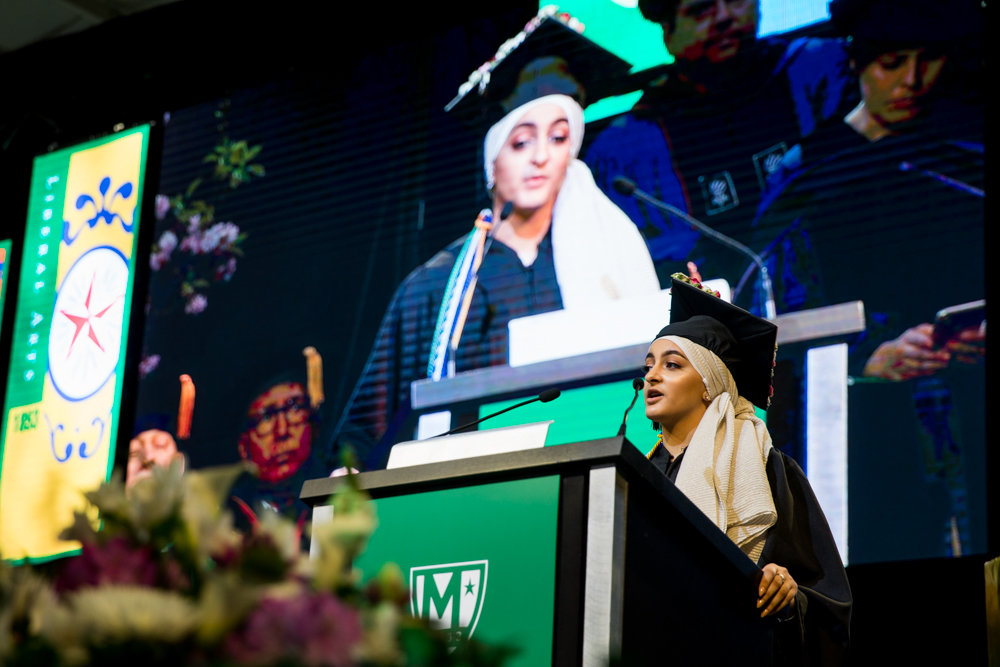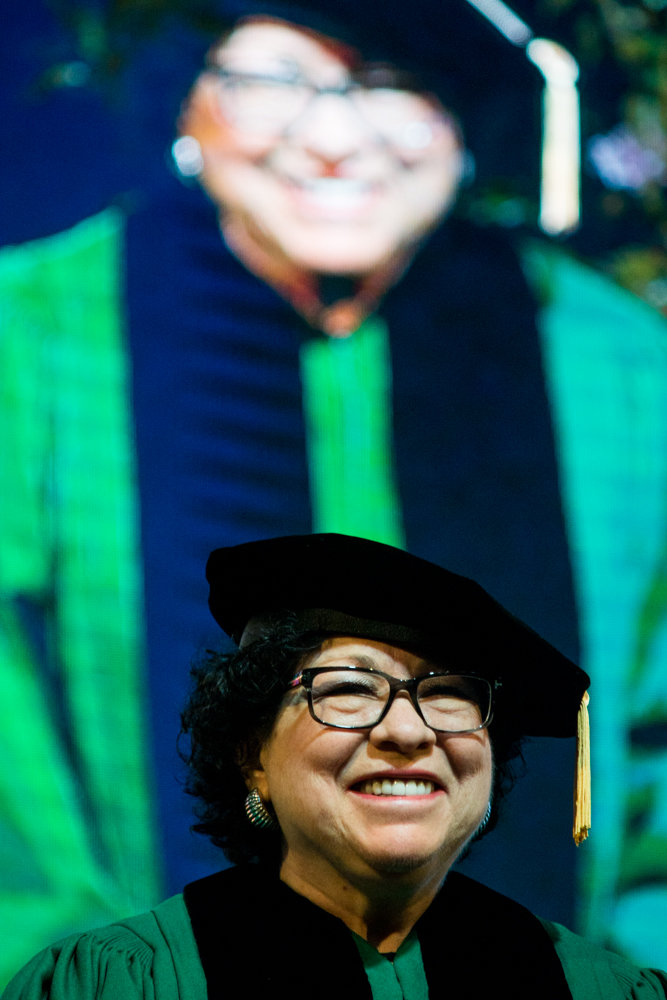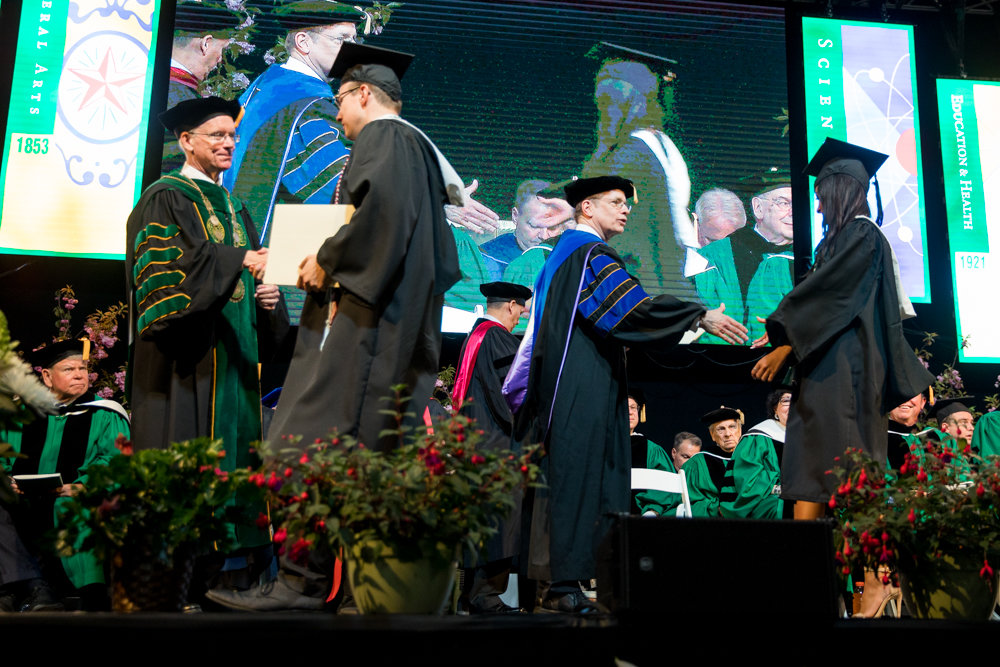‘You have to learn to dream big’
Thousands of devoted family, friends and loved ones — dressed in their finest and carrying bouquets — gathered in Draddy Gym on a mild May morning last week to celebrate the commencement of Manhattan College’s Class of 2019.
Outside, a small army bedecked in academic robes and tassels waited to solemnly file in to Elgar’s “Pomp and Circumstance” march.
For some, it would be their last graduation, the cumulation of years of hard work before launching a career. Others had more such ceremonies in their future before their academic journeys were complete. And to the faculty, it was the proud annual tradition of seeing off the young minds molded and honed within the institution’s hallowed halls.
But for one in their midst, the black robes of an esteemed and honored office is more a work uniform than the fancy dress of a special occasion.
Sonia Sotomayor, a Bronx native and an associate justice of the U.S. Supreme Court, was there not only to accept an honorary doctorate, but also to deliver the commencement address to the largest graduating class in the college’s 166-year history.
“I take great pride in joining the great Class of 2019,” Sotomayor said. “It was an honor for me to share this occasion with all of you.”
Being there was especially joyous because she was back home, in a place that made her heart smile.
“You can send a girl to Washington, D.C. but you can’t take the Bronx out of her,” Sotomayor said, to roaring applause.
Manhattan College, she said, was a special place that epitomizes the values of education and community.
“The five Christian brothers who founded this institution back in 1853 followed in the footsteps of the great educational pioneer, St. John Baptist de la Salle,” Sotomayor said. “They understood that education has the power to change lives. And I don’t just mean, as I will explain today, power to change the financial conditions of people’s lives. I mean also the power of education to touch minds and hearts, to help students lead lives of meaning and purpose.”
Before President Barack Obama appointed her to the court in 2009, Sotomayor spent 30 years as a federal judge, private attorney and district attorney. She graduated from Princeton University and earned her law degree from Yale.
She was the daughter of Puerto Rican immigrants who had few opportunities for education in their youth.
“As some of you already know, I grew up in the poorest areas of the Bronx in a housing project in the southeastern part of that borough,” Sotomayor said. “Some of you may share similar backgrounds. I know our valedictorian does.”
Earlier, Manhattan College’s 2019 undergraduate valedictorian Donya Quhshi described her family’s immigration to the United States from her native Yemen when she was 9.
“It is well known that education is a basic human right,” Quhshi said. “But for many, access to education is a privilege. I am the first to graduate from college in my family.”
In her culture, girls are married off early and education is not an option, Quhshi said. Her mother, who never had educational opportunities, sacrificed much to ensure her children had the freedom to learn.
“Throughout my life she constantly said whomever goes out to seek knowledge, God would go with them until they return,” Quhshi said. “My teachers taught me to never take my education for granted because it’s what opens doors to opportunities and new adventures.”
It was a lesson Sotomayor’s parents ingrained into their children. Her father was a factory worker with a sixth-grade education. Her mother finished high school and worked as a practical nurse. While neither had many educational opportunities, they made learning central to Sotomayor and her brother’s life. Their parents always reminded them that an education was their key to the world.
Learning remained central even after her father died when she was just 9. Even though it was difficult raising children as a widow, Sotomayor’s mother achieved her dream of going back to school to become a registered nurse once her children finished high school.
“My mother made clear, in both words and deeds, that a good education was the key to success in life,” Sotomayor said.
All graduates should feel proud of the hours of hard work that led to that moment, she said. But they also should pause to thank the family, friends, teachers and others who helped along the way.
“Working together with others, you may have already discovered, is one of the great secrets to achieving anything in the world,” Sotomayor said.
Much has been said and written about the financial advantages and risks of going to college in recent years. But earning a degree is still one of the greatest advantages young people can have, Sotomayor said. From a dollars-and-cents standpoint, studies have found a degree will put graduates ahead financially over a lifetime.
“But what all the data misses is that education has a more important value than money,” she said. “It is deeply important to our growth as people and a community.”
Sotomayor is often asked if, as a child, she ever dreamed one day she’d be the third woman and the first Latina to serve on the Supreme Court. She tells them no, that as a child of a poor family, she had no idea what judges and lawyers did or how to become one. She knew nothing about the nation’s highest court, its function and how it protected Constitutional rights.
“You cannot dream of becoming something you do not know about,” Sotomayor said. “You have to learn to dream big. And education exposes you to what the world has to offer, to the possibilities open to you. It teaches you how to navigate your profession and your life in general.
“For me, education opened my eyes to what I could become.”

